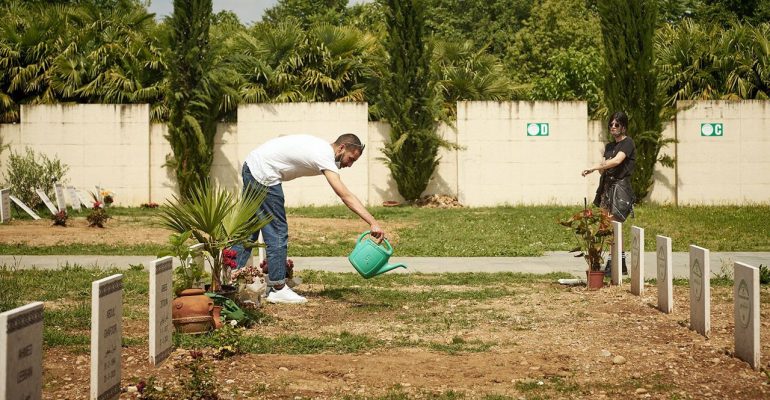For Italy’s Muslims, few places to pray and fewer places to bury COVID-19 dead
August 12, 2020 2023-06-23 16:50For Italy’s Muslims, few places to pray and fewer places to bury COVID-19 dead

For Italy’s Muslims, few places to pray and fewer places to bury COVID-19 dead
Before the pandemic struck, fewer than 60 of Italy’s 7,903 municipalities had a dedicated Islamic cemetery, in a country that is home to more than 2 million Muslims. The limited number of burial spots has to do with the peculiar relationship between Italy’s Muslim community and Italy’s local officials. According to a 2019 U.S. State Department report on religious freedom, there were “only five mosques that Italy’s regional governments and Muslim religious authorities both recognized.” The faith’s other 1,200 religious centers nationwide are registered simply as nongovernmental organizations.
Despite a push to fill that legal void in 2017, “Muslims continued to experience difficulties in acquiring permission from local governments to construct mosques or to continue operating existing ones,” the report said. Before the COVID-19 emergency, Italy’s Muslims didn’t regard the cemetery shortage as a priority. The living were more concerned with where to pray, with some resorting to so-called garage mosques. These makeshift places of worship have been connected, with little evidence, to terrorist activity and radicalization, especially since the radical cleric Abu Omar was abducted in Milan in a controversial CIA rendition in 2003.
But many in the Muslim community say the linkage to terrorism amounts to prejudice, mostly from right-wing parties. In 2015, legislators on the right proposed and passed a law to map the “Muslim cultural centers” and introduced a national registry for imams in order to aid police counterterrorism operations.
With few places to pray, there were even fewer places to bury the dead.
Muslim migrants to Italy often pay thousands of euros to repatriate the body of a loved one to the person’s country of origin. According to a 2018 paper issued by the Initiative for the Study of Multiethnicity, a think tank that studies the impact of migrants on Italian society, roughly 90% of relatives of the dead preferred to repatriate the body of a Muslim family member.
The pandemic brought the issue of burial space to the forefront. Since Italy stopped allowing bodies to be sent out of the country on March 1, many had to be buried on Italian soil, and the stricture to hold the burial within 24 hours could not always be honored.
Source: Religion News








